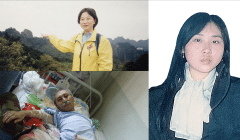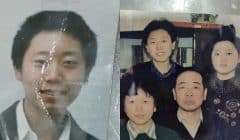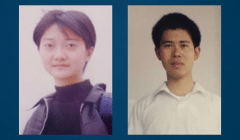HRW: Excerpts: China: Human Rights Conditions and U.S. Policy Statement by Mike Jendrzejczyk to the Congressional Human Rights Caucus (May 15, 2001)
But even before “Strike Hard,” throughout the past year the Chinese government systematically suppressed independent political activities of all kinds. It tightened controls on unofficial religious activity as potentially subversive, while singling out the Falun Gong meditation group for particularly harsh repression
Crackdown on Falun Gong:
On July 22, 1999 the Ministry of Civil Affairs, which registers all social organizations, labeled Falun Gong an illegal organization and accused it of spreading “superstition” and “endangering social stability.” Thousands of Falun Gong members have been sent to reeducation through labor camps, though most have served only brief terms, then been released and returned to their home villages. Those considered the dangerous ring leaders or organizers have been given stiff prison terms.
Most recently, on April 24, a Falun Gong practitioner, Ms. Zhang Xueling, whose story was featured in a Pulitzer Prize-winning series in the Wall Street Journal, was reportedly sentenced to three years in a labor camp for “using a cult to undermine the implementation of law.” Zhang had protested the reported beating death of her mother (also a Falun Gong member) by police last year. At this past March’s meeting of the National People’s Congress, Premier Zhu Rongji made it clear that the fierce crackdown on Falun Gong will continue. He denounced the group as “anti-human” and said Falun Gong was being used by “domestic and overseas forces hostile to our socialist government.”
Hong Kong (Special Autonomous Region):
Hong Kong is facing a crucial test of its “one country, two systems” formula. I was in Hong Kong a few weeks ago, and the SAR’s solicitor general assured me that so long as Falun Gong members obeyed Hong Kong’s laws, they could function freely in Hong Kong. Yet Mr. C.H. Tung, Hong Kong’s chief executive, has repeatedly threatened the organization, using the same rhetoric to attack it as is used in Beijing. This has raised fears among many that if Jiang Zemin was embarrassed by the Falun Gong protests during his visit to Hong Kong to speak at an international business conference on May 8-10, the group may also be banned in Hong Kong, or that Falun Gong’s activities could be used as a pretext to pressure Hong Kong to enact an anti-subversion law or an anti-cult law. Jiang used his speech to criticize those “creating tension” in Hong Kong. Although SAR authorities did allow Falun Gong members and pro-democracy activists to demonstrate, more than 100 Falun Gong members ?including some U.S. citizens ?were banned from entering Hong Kong. Donald Tsang, the SAR’s chief secretary, defended the government’s overreaction by referring vaguely to “undesirable elements” who were kept out.
The full text of the statement is available at: http://hrw.org/english/docs/2001/05/15/china118.htm






